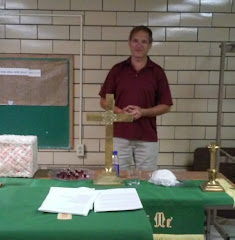The book of Acts suggests three models for what a church should look like, particularly when it comes to disagreements.
Acts 2:42-47 offers an ideal vision of the church. Immediately after Pentecost, as the church was just beginning, its members shared remarkable unity and harmony. As verse 44 puts is, “all the believers were together and had everything in common” (NIV). The description of the church fairly drips with the joy of shared life in God’s community. This is what we strive and hope for, but we only catch occasional glimpses of it in a messy world filled with imperfect people. If we think that anything short of this is a failure, we’re setting a standard that will surely disappoint. The euphoria at the beginning of a romantic relationship won’t continue uninterrupted through the course of a marriage. The joy that someone feels when they become a Christian doesn’t last; the mountaintop experiences are punctuated by valleys of struggle and growth. Life as a church isn’t always easy and joyful. While this description of church life is our goal, we need a model that helps us with the tough work.
Acts 15:36-41 describes a situation of difficulty and conflict. Paul and Barnabas disagreed over the mission for the church (sound familiar?), so they parted company. Silas went with Paul, and Mark joined Barnabas. We may want to use this as a Biblical model for disagreement in the church: walk away from each other. If we disassociate from other Christians with whom we disagree, maybe we can return to the utopia of Acts 2. When we have a “sharp disagreement” with each other, as Paul and Barnabas did, perhaps an amicable separation is God’s call for us. I’m not so sure. Paul still had Silas, and Barnabas still had Mark. As the old saying goes, if you put two Presbyterians in a room, you’re going to end up with three opinions. Because of our sinful human condition, it’s only a matter of time until Paul bickers with Silas, and Barnabas falls out with Mark. Now we have four groups. Surely it’s not God’s intention for us to separate every time we disagree, until we each have our own private little church. There has to be a way for us to face our disagreements without destroying our covenant relationships with each other. If God brought us together as a church, we need to figure out how to stay together.
Acts 15:1-21 suggests a third model for what a church can look like. The early Christians disagreed over the role of Gentiles in the church: did they need to become Jews first, or did Christ’s grace extend to all nations? The leaders of the church gathered at what is now called “the Council of Jerusalem” to deliberate on this issue (the first General Assembly!). Representatives from both sides stated their case, and the apostles and elders prayerfully sought God’s guidance. Finally James, as the “moderator” of the Jerusalem church, spoke for the body by giving a final decision. Some people agreed with it, and others didn’t. The issue didn’t go away: just read Galatians to see how strong the disagreement continued to be! Nonetheless, the church had made a decision, and it was time to move on.
Here’s the bottom line: joyful harmony is our goal, but we need to figure out what to do when we don’t have it. Parting company with each other, even on good terms, leads to disintegration. Prayerful and respectful deliberation and decision-making helps us move forward, even if it doesn’t make everyone happy.



